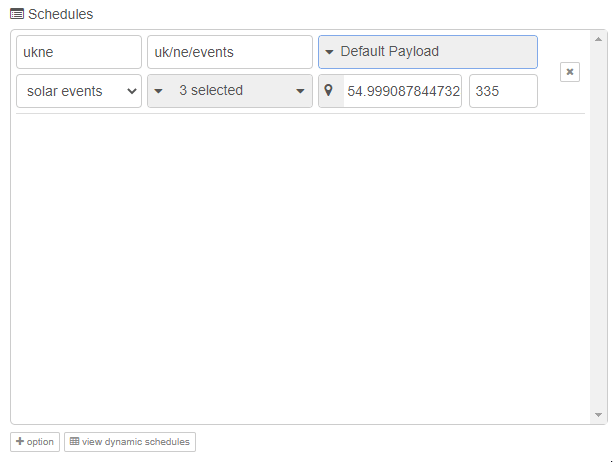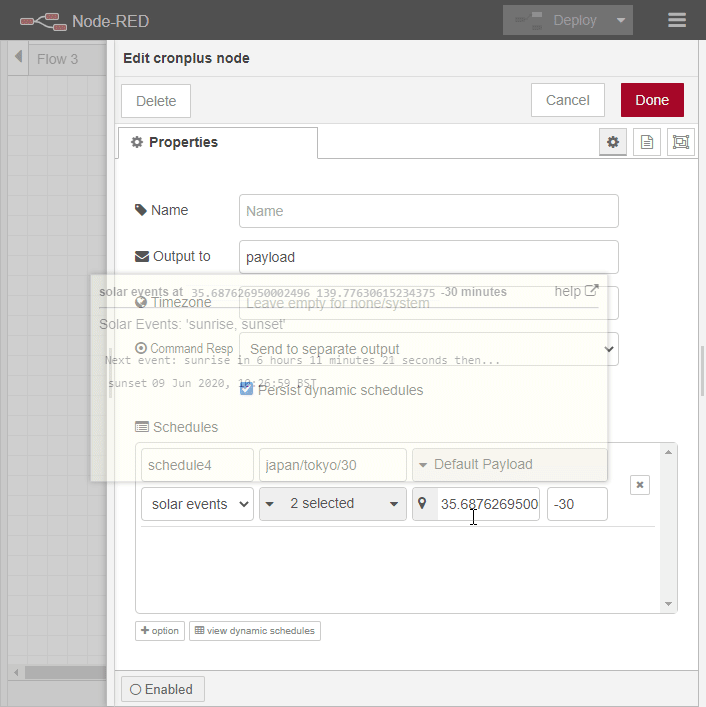
Security News
vlt Launches "reproduce": A New Tool Challenging the Limits of Package Provenance
vlt's new "reproduce" tool verifies npm packages against their source code, outperforming traditional provenance adoption in the JavaScript ecosystem.
node-red-contrib-cron-plus
Advanced tools
A flexible scheduler (cron, solar events, fixed dates) node for Node-RED with full dynamic control and time zone support
A flexible timer/scheduler (cron, solar events, simple dates) node for Node-RED with full dynamic control and time zone support




msg.payload but it is up to you)msg.cronplus
msg.cronplus is moved to msg.payloadsettings.js or an environment variable named CRONPLUS_MAX_CLOCK_DIFF (as of V2.0.0)Easiest...
Use the Manage Palette > Install option from the menu inside node-red
Harder...
Alternatively in your Node-RED user directory, typically ~/.node-red, run
Run the following command in the root directory of your Node-RED install.
(Usually this is ~/.node-red or %userprofile%\.node-red).
Install from NPM
npm install node-red-contrib-cron-plus
Install from GIT
npm install Steve-Mcl/node-red-contrib-cron-plus
Alternatively, install from a folder
npm install c:/tempfolder/node-red-contrib-cron-plus
Or simply copy the folder node-red-contrib-cron-plus into a folder named nodes inside your node-red folder then cd into nodes/node-red-contrib-cron-plus and execute npm install
FAQs
A flexible scheduler (cron, solar events, fixed dates) node for Node-RED with full dynamic control and time zone support
The npm package node-red-contrib-cron-plus receives a total of 1,038 weekly downloads. As such, node-red-contrib-cron-plus popularity was classified as popular.
We found that node-red-contrib-cron-plus demonstrated a not healthy version release cadence and project activity because the last version was released a year ago. It has 1 open source maintainer collaborating on the project.
Did you know?

Socket for GitHub automatically highlights issues in each pull request and monitors the health of all your open source dependencies. Discover the contents of your packages and block harmful activity before you install or update your dependencies.

Security News
vlt's new "reproduce" tool verifies npm packages against their source code, outperforming traditional provenance adoption in the JavaScript ecosystem.

Research
Security News
Socket researchers uncovered a malicious PyPI package exploiting Deezer’s API to enable coordinated music piracy through API abuse and C2 server control.

Research
The Socket Research Team discovered a malicious npm package, '@ton-wallet/create', stealing cryptocurrency wallet keys from developers and users in the TON ecosystem.